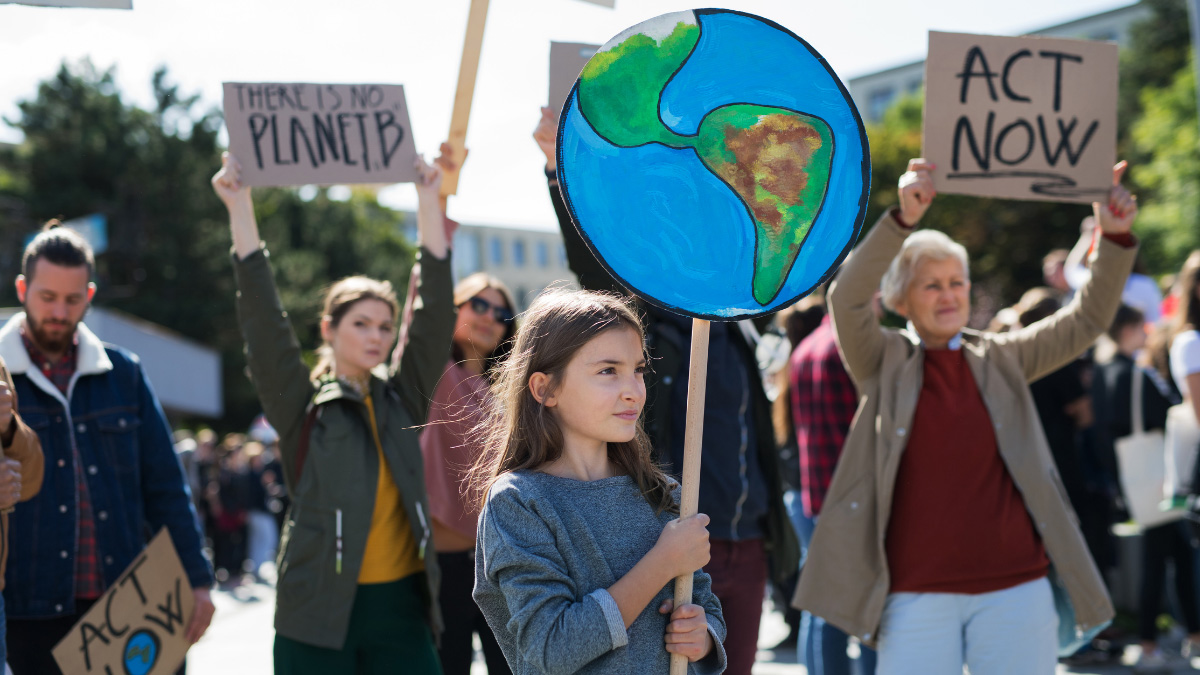 Ahead of her appearance on the Climate Justice and Future Generations panel session (part of IFoA’s ‘Road to Glasgow’ Sustainability Thought Leadership Series sponsored by Milliman), the IFoA Policy Team interviewed Alice Bordini-Staden (Intergenerational Foundation and Managing Director, GLC Advisors Ltd) to discuss her views on this important debate.
Ahead of her appearance on the Climate Justice and Future Generations panel session (part of IFoA’s ‘Road to Glasgow’ Sustainability Thought Leadership Series sponsored by Milliman), the IFoA Policy Team interviewed Alice Bordini-Staden (Intergenerational Foundation and Managing Director, GLC Advisors Ltd) to discuss her views on this important debate.
IFoA’s Sustainability Thought Leadership Series seeks to convene leading experts, thinkers, and decision-makers with our global membership to debate the key sustainability issues of our time which intersect both actuarial science and the interests of wider society. Through the series, we aim to provide a platform for prominent contributors so that our members and others can understand the perspectives of a wide range of parties interested in the climate debate.
Alice: "There's is one key Intergenerational issue. Previous generations have grown rich (in aggregate) while polluting the planet. Who is going to pay to move us to a sustainable future? Older generations are not just (mildly) less willing to pay for the necessary adjustments to alleviate climate change[1] (despite their greater affluence), they are also more likely to dispute the very existence of climate change as a pressing existential threat to humanity[2][3]"
Alice: "The OECD has a principle that 'the polluter pays'. I don't see when the world changed that to 'the grandchildren pay’.
There are two bills that need to be paid: pricing externalities correctly, and the cost of the transition to a green sustainable world. Of the two, externalities are probably the simpler to levy: there has to be a cost attached to emitting carbon dioxide (and to destroying biodiversity). Most governments and corporates with which I engage concede the principle of carbon pricing. The problem is the price and scope. This acceptance does not apply globally but refuseniks could be taxed indirectly through cross-border taxation.
It's too broad to say that an entire generation benefitted from damaging the environment and that another entire generation should pay the cost. The winners of the period 1970-2021 (and counting) when most of the damage has been sustained, are very unevenly spread; there are plenty of pensioners in the Third World who would find such a characterisation fairly ironic, one imagines?
As a first approximation, everyone, of every generation, has probably benefitted indirectly from degrading the environment. The wealthier they are, the more they are likely to have benefitted. This seems a perfect example of where progressive taxation, particularly in the form of capital taxes, would be appropriate. However, I acknowledge the difficulties in levying worldwide taxes"
Alice: "The typical carbon offset involves planting a forest and counting the tons of carbon sequestered above ground. This is compounded by various protocols, often based on EPA (US Environment Protection Agency) protocols for what counts as 'sequestered'. In particular, harvested lumber is specifically subtracted within these protocols.
A cursory examination of recent news footage shows that a lot of that sequestered above-ground carbon has been on fire recently.
There are only three long-term destinies for trees. Either they burn down, or they are chopped down by future non-Paris compliant owners, or they die and (excepting the particular example of mangroves where dead trees are, to some extent, sequestered) the carbon is returned to the atmosphere through fungal, bacterial and etymological means. Offsets calculated from forests are, at best, a very short term fix. We pump out oil that has been sequestered for hundreds of millions of years, capture the carbon in a forest with a longevity of hundreds of years and claim we are 'carbon neutral'?"
Alice: "Corporate PR - 'I don't have to reduce my emissions because he's going to reduce his instead'? In a net-zero world, there will be no emissions to avoid so we are only talking about transitional arrangements - paying someone else to reduce their emissions to allow me to reduce mine more slowly. The problem is that such schemes are almost impossible to police. No-one takes them seriously in my world"
Alice: “Well, CCS is unproven and uneconomic. However, the geological structures being suggested have a better chance of working over geological timeframes than forests do. The simple truth is that we have to stop digging up carbon; that game is over. Any system that requires carbon credits and netting of carbon emissions is implicitly a transition period.
I'm not totally opposed to forestry offsets despite their problems[4]. We need to encourage the planting of more forests, among other mitigation measures. The problem is that these offsets tend to focus on carbon stored above ground, which is inherently unstable.
If I could make one change, it would be the following - convince the EPA et al that instead of subtracting lumber from the value of carbon offsets, it should be the only thing counted. When a plank of wood is thrown into landfill, 97%+ ends up sequestered because of the wet anaerobic conditions[5][6]. People should be rewarded for throwing wood into landfill - landfill is the coal of the future."
[1] https://www.sciendo.com/pdf/10.2478/se-2019-001
[2] The Generational Divide Over Climate Change | Chicago Council on Global Affairs
[3] https://www.bsa.natcen.ac.uk/media/39251/bsa35_climate_change.pdf
[4] https://www.tandfonline.com/doi/full/10.1080/14693062.2016.1242056 Section 2
[5] The decomposition of forest products in landfills - ScienceDirect